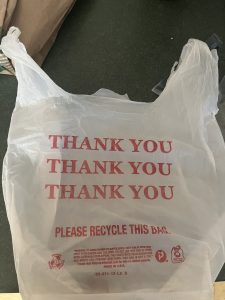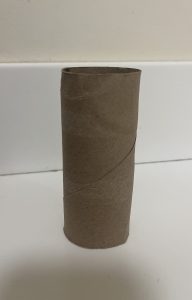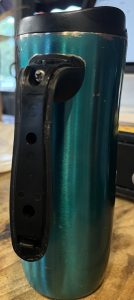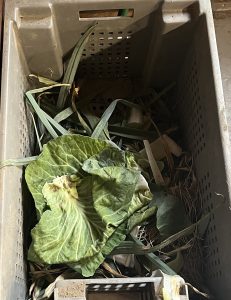If I were an archaeologist 1000 years from now I would find a cataloged collection of everything that we have made from plastics. For example, just the masks from this global pandemic and every other for the next 1000 years. The mountains of waste that we create. There is a chance that we decide to stop producing plastics and single use plastics in the future but it will not be anytime soon. We are going to find out the repercussions of our mistakes and innovations. The solutions surrounding the global climate crisis will not be found in the heaping piles of plastic. We need to find the change in ourselves to stop using all the plastic that we don’t need. We just could say no to plastic. It may make our lifes a whole lot less convenient, but learning to live without the conveniences would be revolutionary. The large corporations that are making certain people wealthier and wealthier aren’t taking the problems seriously enough. The landfills are filled with out waste that is packed down years and years at a time. If someone could catalog every year’s waste in one place, we could learn so much about human habits and evolution. The evolution of what we are making, creating, and destroying would be in one place.
Author Archives: Alena Maes-Polan
Circular Economy
The circular economy of the plastic bags that run around in the world, changing hands so often. The mass production of these small bits of plastic are polluting the environment. Spreading awareness of reusing and not just throwing these plastic bags away is very important. Reduce, reuse, recycle. The societal mentality of single use objects is dangerous. Consistently people are using single use plastics for everything. Our day to day lives are filled with plastics like these plastic bags. Everytime we go to grocery stores we take home a couple of these plastic bags. It’s crazy to understand the mass quantities of just plastic bags that are in landfills. They are floating in our oceans and waterways. It makes me worry about the future of our planet. The irreversible destruction created by turning crude oil into plastic will haunt us forever. “Humans took substances from the Earth’s crust and concentrated, altered, and synthesized them into vast quantities of material that cannot safely be returned to soil.” (Braungart, McDonough) This quote explains exactly what the human race has done with the materials we found in front of eyes.

Disruption
Something functioning ‘normally’ is dependent on the eye of the beholder, it’s on a spectrum. There is no way to acknowledge what ‘normally’ functioning is. Things can just work out to not have anything get in the way but who knows if that is actually normal. There seems to be social constructs that make things more clear when we try to explain why we like clean and nice things. That might not just be social constructs because most people would just say that trash is gross and they would rather not even deal with it, if they had a choice. The waste disposal system has many hiccups that lead to major inconveniences and physical masses of waste in “incorrect” places. I would say that there is a correct place for objects that are owned by people and used most days. There is a chance that all the waste we are creating on this earth that people don’t want anymore is taking up so much space that we don’t care about anymore. They become someone else’s problem or just shoved under the earth’s surface to not have to deal with it anymore. Political and social change can be influenced by environmental protests and/or social movements to gather people to make change.
Pollution
One of the regular activities that has changed for me this year is taking the trash out to the bumpster in the Enfield Parking Lot. There are two dumpsters out there. One being for trash and the other for recycling and yet most of the trash thrown in both of them are a mixture of all sorts of waste. From the kitchen trash can in my Mod gets filled very quickly. I live in a seven person Mod and the amount of trash we make is kind of crazy to me. The difference between how much trash I make at home and on Hampshire campus are drastically different. At home my mother and I are very conscious of what we reuse and throw away. We do have good habits like collecting the bottles and cans we use to return them to supermarkets to get money back from them. On the other hand we still have to take the trash out about every 3 days. Accepting the amount of trash that I make shows me that I might need to change some habits. The problem with this is that I think less about what is happening around my waste because I have so many other things to focus on. Life gets complicated and the fastest and easiest way to deal with it is just throwing something in the trash and forgetting about it. This seemingly makes it not my responsibility any longer.
Conceptualizing Waste
Using the different ways to conceptualize waste, Moore has presented many concepts that collectively give a wider view of what waste means and represents. The object that I chose is a compostable plastic cup that we get from the dining commons or the Kern on Hampshire campus. The first concept is matter out of place. The fact that the cuts say compostable on them makes it more confusing when throwing the cups away. Inside of the Kern Cafe there are trash containers that are labeled ‘Compostable’. This is really great while you’re sitting and drinking in the Kern but if you haven’t finished your drink and you want to leave, by the time you are done with it the compostable trash containers are nowhere in sight. A solution is to put a couple more of those trash cans around campus. I believe that people would be good at throwing away scraps of compostable things in them. Inside the dining commons there is also a compostable section but there is no recycling. The matter out of place in this case is that there is not a readily available place to dispose of them around campus. This also gets wrapped up in commodities. The school uses so many of these cups. It is easier to have these cups around than to have reusable ones because people take them out of the places they get them from. It also goes along with filth and risk. The bacteria in the cups days after use has grown on the cup and using it again might be dangerous or ‘gross’ in some people’s minds. Seeing these cups around campus makes me realize how much waste just this one very small campus makes and how much more UMass makes.
Disposability
The interaction between humans and the environment has taken us to a whole new world. We create things in the production world to make money for the consumer world. So many things that don’t NEED to be made come out of factories everyday. Companies have started to manipulate consumption tactics to increase the likelihood that things will be bought or sold. The consumer trading business skyrocketed since the online market has become readily available. The cardboard paper that is inside of every roll of toilet paper and paper towels is widely known. Most people just throw those away after they use up the paper on the outside of the tube. I’m not sure if people realize how many we just throw away. There are so many ways to use them, (recycle). In winter if you have a wood stove you can start fires with them. I have a hamster so when I finish a paper towel or toilet paper tube I give it to my hamster. The tubes would be considered trash or waste to most people. I have a brain that thinks that things are not usually trash until they are dirty.

Distancing Infrastructures
A place around campus that I feel as if it hold a foundation of waste is the Kern. With the Kern being a zero emission building there is a very interesting aspect of the understanding of the grounds. Last year while taking a tour of the kern building I learned about the different aspects of the building that make it so special and unique. The composting toilets are a very special part of the building. I feel as if it gives the building a very cool personality. There is character in it. I personally feel like the waste that humans make comes in so many forms that we exclude liking most of them when it comes to social norms. The composting toilets go through cycles of getting cleans and turned to compost and the grey water from the building gets filtered many times. That grey water once filtered got back into watering the plants in and around the Kern building. The kern holds many impressive fleats of engineering that makes it such a cool space to be in and around. Its a great place on campus.
Responsibility and Waste Workers

Today I rescued a metal thermos that someone had thrown away because the handle of it started to fall apart and the paint is chipping on the edges. I thought that it would be completely fine. I washed it out thoroughly with hot water and soap and will wash it one more time before I use it, just because I like things to be clean before I use them after trading hands. There is a chance that there was a perfectly normal reason for the person to get rid of the thermos. I think it is in good condition, it just doesn’t look brand new anymore. There are all sorts of things that are thrown away all the time that I feel like should be able to be given or taken by waste workers without any repercussions of any kind. There is a social structure of thinking that waste workers are less than because they deal with other people’s trash, but if we didn;t have these essential workers in our public works then our everyday lives would look very different. There is a great possibility that excess trash and waste would be thrown about on the streets of cities more than they already are. Along with the waste we would have piling up in our lives, our houses, and yards.
Hoarding and Cleaning
There are so many things in my life that I believe people would call me a hoarder for having. I collect things from my travels. All sorts a small things that remind me of the places I’ve been around the world. It is a really great thing to do if you scrapbook, but I have a hard time remembering to put them in scrapbooks then you justhave a collection of random things that you eventually forget where you got them. The holding on to things even when you don’t need them would qualify me as having hoarding tendencies. The only difference that I would justify is that I have the intention to use them in a meaning fun scrapbook but just never get around to it, which is a shame. For example, I have a small collection of small ripped up paper from the netherlands and the UK that I got this last summer. They have very little value and mean nothing to everybody but me. I have held on to them and now they hold a special place in my mind just for them. The memories that come out of them make me smile and thats why I’ve held on to them. Its a great reminder that a different world is out there. Another example is the amount of clothing I have. I have much of my clothes from my childhood that no longer fits that I keep because I want to have the remembrance of wearing them. Along with wanting to give them to my kids when I grow up. I think that hoarding has to do a lot with the past experience of people. There is a chance that If people grew up without having things that were stabbly their own, then they might feel the interest to hoard things that are now their own things. A coping mechanism that makes them trust themselves and their things more. Just a thought.
Dirt: Matter Out of Place
On the typical day of me working on the farm, we see a lot of produce that goes bad. There is an entire food production process that throws away produce that seems to be a little bit hard. In my mind, I have a hard time throwing away food. It takes a lot out of me to toss away perfectly good food that no one wants to buy. The farmstand I work at, has to throw away produce once it starts going bad so that it doesn’t make the rest of the produce rot also. A good example of this is the tomatoes, they go bad quickly and take out a couple previously good tomatoes with them. The problem with people thinking that food is waste, is that people are less considerate about where and when we decide that produce is no longer good to each. I think eating rotten vegetables is really nasty but at the same time I believe that there is so much produce at local farms that would still be perfectly good to give to food pantries and community kitchens. There is a community of homeless people that lives in the small cities around here that I believe would have a much better time getting good produce if the farms were able to give produce directly to them. I don’t believe that the food ‘waste’ I make in my house is bad because we have chickens to eat the scraps.
